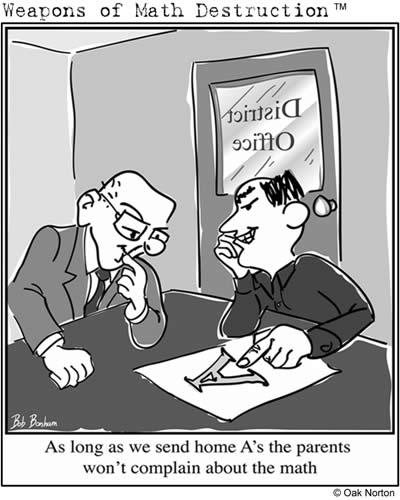|
Updates: 03-11-200903-04-2009 02-16-2009 01-08-2009 12-18-2008 12-13-2008 12-03-2008 11-26-2008 11-15-2008 09-25-2008 09-18-2008 09-03-2008 08-13-2008 07-11-2008 05-28-2008 04-15-2008 03-28-2008 03-22-2008 03-13-2008 03-11-2008 03-06-2008 01-30-2008 01-23-2008 01-16-2008 01-09-2008 12-29-2007 12-12-2007 11-28-2007 11-22-2007 11-16-2007 11-13-2007 11-07-2007 10-31-2007 10-20-2007 10-17-2007 09-26-2007 09-12-2007 08-29-2007 08-23-2007 08-11-2007 07-19-2007 07-11-2007 07-04-2007 06-27-2007 06-20-2007 06-14-2007 06-06-2007 05-30-2007 05-23-2007 05-16-2007 05-09-2007 05-02-2007 04-25-2007 04-18-2007 04-11-2007 04-04-2007 03-28-2007 03-21-2007 03-14-2007 03-08-2007 03-07-2007 03-01-2007 02-28-2007 02-21-2007 02-14-2007 02-07-2007 01-31-2007 01-24-2007 01-17-2007 01-10-2007 01-03-2007 12-20-2006 12-13-2006 12-06-2006 11-22-2006 11-15-2006 11-08-2006 11-01-2006 10-25-2006 10-18-2006 10-11-2006 10-03-2006 09-27-2006 09-20-2006 09-13-2006 09-06-2006 08-30-2006 08-23-2006 08-16-2006 08-09-2006 08-02-2006 07-26-2006 07-12-2006 07-05-2006 06-28-2006 06-21-2006 06-14-2006 05-31-2006 05-22-2006 05-17-2006 05-10-2006 05-03-2006 04-26-2006 04-19-2006 04-12-2006 04-05-2006 03-29-2006 03-22-2006 03-15-2006 03-10-2006 03-08-2006 03-02-2006 02-24-2006 02-15-2006 02-14-2006 02-11-2006 02-09-2006 02-03-2006 01-24-2006 01-19-2006 01-10-2006 01-04-2006 12-20-2005 12-08-2005 12-01-2005 11-15-2005 11-10-2005 11-03-2005 11-02-2005 10-24-2005 10-20-2005 10-16-2005 10-05-2005 09-29-2005 09-22-2005 09-19-2005 09-07-2005 08-11-2005 08-08-2005
|
Weekly Math UpdatesJuly 5, 2006 Contents:
Hi all, just a couple items this week. By now you've seen my announcement about the Convocon (www.convocon.com) project and I want to let you know I'm not stopping the math fight, but honestly there's only a few things left to accomplish over the next year and as they get completed it will wrap up certain phases of this fight for better education. With it slowing down a bit, I figured I needed something else to satisfy my ADD (math pun intended) so I've started a project to overcome my ignorance of constitutional government and will try to influence kids in a positive way to appreciate the freedoms we enjoy because of it. I won't mention much about it here because this is a math list, but I would encourage you to join the program since we will have constitutional experts leading the discussions and it will be very educational and interesting. Now on to the update. Orem City Update Upcoming events for Orem: Also of major news, those of you in Orem will now be able to record signatures of people that want the issue on the ballot in November, by just using the phone or email...no more tight controls on documents. Beau Sorenson needs all signatures recorded and turned in by August 1st. To facilitate this, the Orem School District website will have an online form in the next few days to allow you to just log on and record the personal information for people that are in support of this measure. I will send out an additional email notifying you that you can sign up online if you live in Orem, and if you're calling people you can just sit at your computer and type in their information with their approval. Web Site Until I attended the Orem city counsel meeting a couple months ago, I didn't know there was yet another website in this area documenting the poor math in ASD. Named "Kids Do Count", here's a link to the site and a clip from the Impact page. Be sure to read the rest of the Impact page on Connected Math issues. http://snow.prohosting.com/mathiq/index.html
Math Tuition This letter is a little old but I thought I'd put out the idea so you can be thinking about this. If enough citizens start getting hit where it hurts (pocketbook) maybe it'll help create more of a statewise uproar over the issue.
Diebold Election Equipment Fiasco (off-topic)--Part 2 After last week's news about Diebold, I got an email I thought I would share with everyone from someone who works in the high-tech industry.
Weekly Comic
Archive: http://www.oaknorton.com/weaponsofmathdestruction.cfm Till next week, Oak Norton |
|
| Copyright 2005-06, All Rights Reserved | ||
